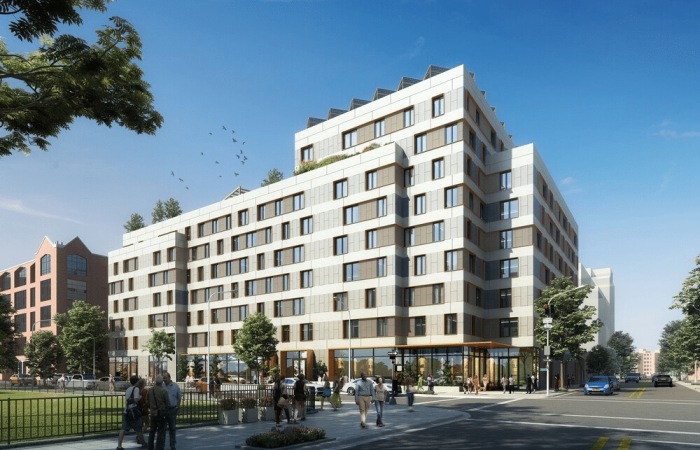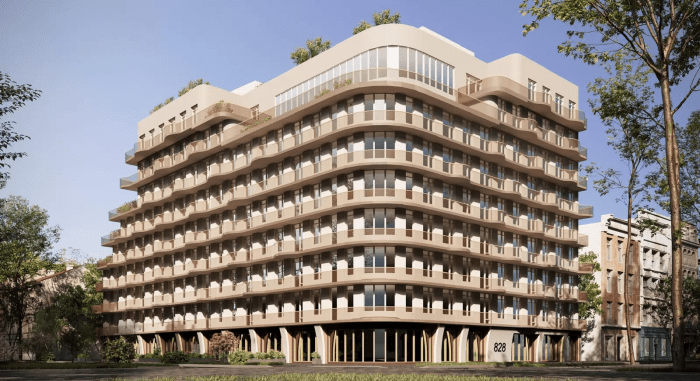Suddenly, there’s going to be a supermarket in Brooklyn Bridge Park.
The developer of One Brooklyn Bridge Park, a 449-unit residential building within the 85-acre waterfront development is negotiating to get a grocery story in his building, which is at the corner of Furman and Joralemon streets and an anchor of the park plan.
Even supporters of the condo, commerical and open-space development consider a supermarket a bad idea.
“I don’t think it’s the most complimentary business for the park,” said Judy Stanton, executive director of the Brooklyn Heights Association.
Planners’ original dream of a waterfront park stretching 1.3 miles from the Manhattan Bridge to Atlantic Avenue has morphed into a revenue-generating enterprise under a state mandate that the site’s maintenance budget come from economic activity on the site rather than from the state’s general treasury.
As a result, park planners added in condos into the park’s footprint. Fees on residents of those condominiums — and taxes collected at their supermarket — are supposed to cover the maintenance costs.
The Brooklyn Bridge Park supermarket won’t be just another bodega, promised Ian Levine, a spokesman for the building’s owner, Robert A. Levine.
“Our initial push is for a high-end market with prepared food,” Levine said. Then, referring to the park’s self-financing mandate, he added, “Unfortunately, the park wouldn’t come to fruition without us.”
Still, the pronouncement reinvigorated the controversy around Brooklyn Bridge Park and renewed criticism of the funding scheme that, supporters say, makes it all possible.
“Parks should not be self-sustaining,” said Ken Baer, chair of the Atlantic Chapter of the Sierra Club. “They are public amenities. All the land within the park should be devoted to recreational space.”
But they are fighting a losing battle, because the city and state have signed off on the plans, though a lawsuit is pending. Demoliton within the footprint is set to begin as early as this week, as the Purchase Building, a historic structure beneath the Brooklyn Bridge will be knocked down.
Levine said the developer of One Brooklyn Bridge Park — which until it changed its name to the more-chic sounding address was known as the former Jehovah’s Witness printing plant at 360 Furman St. — is also looking to add two restaurants for riverfront dining, a gallery or special events venue and small shops to the building.
Unlike Stanton, other supporters of the park and its financing scheme will tolerate the presence of a supermarket — to a point.
“We realize that ground-floor retail in the development parcels will need to strike a careful balance between that which serves park visitors and that which serves primarily building residents,” said Marianna Koval, president of the Brooklyn Bridge Park Conservancy.






















